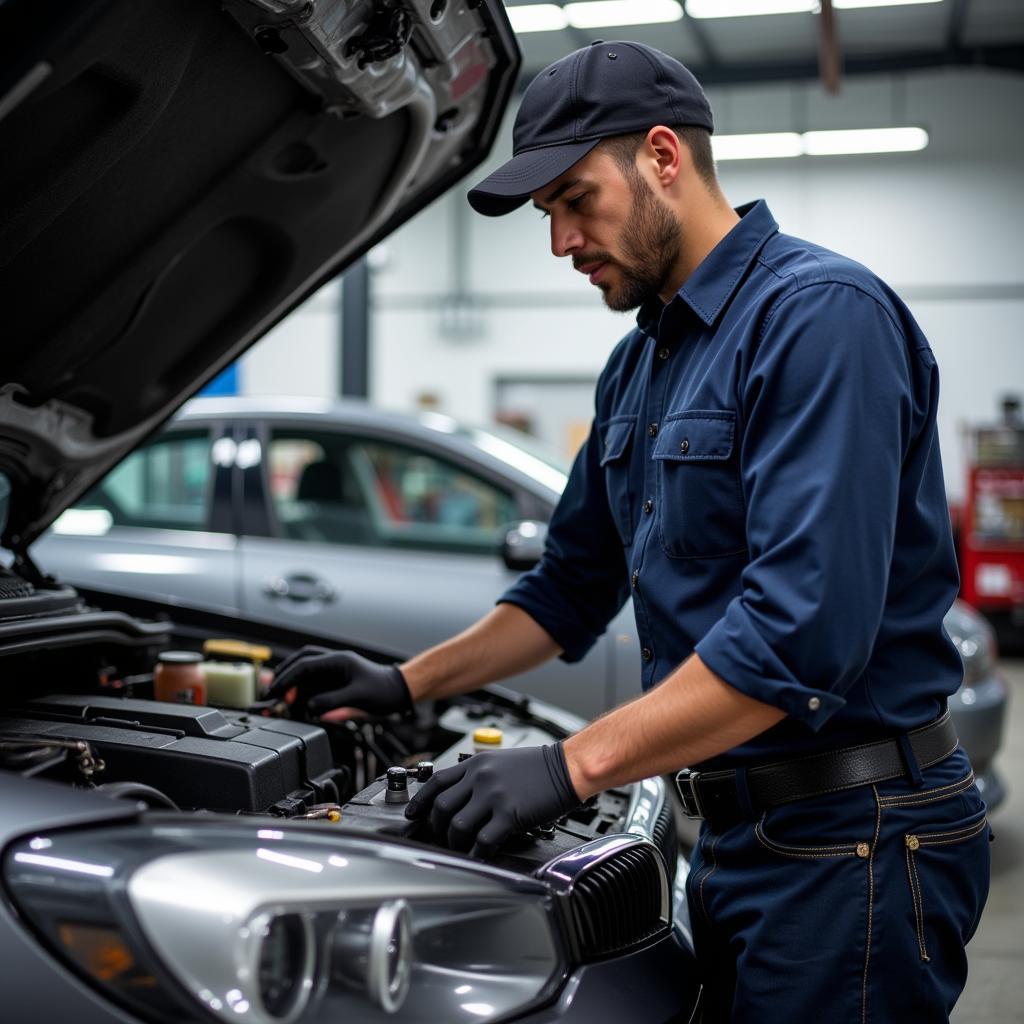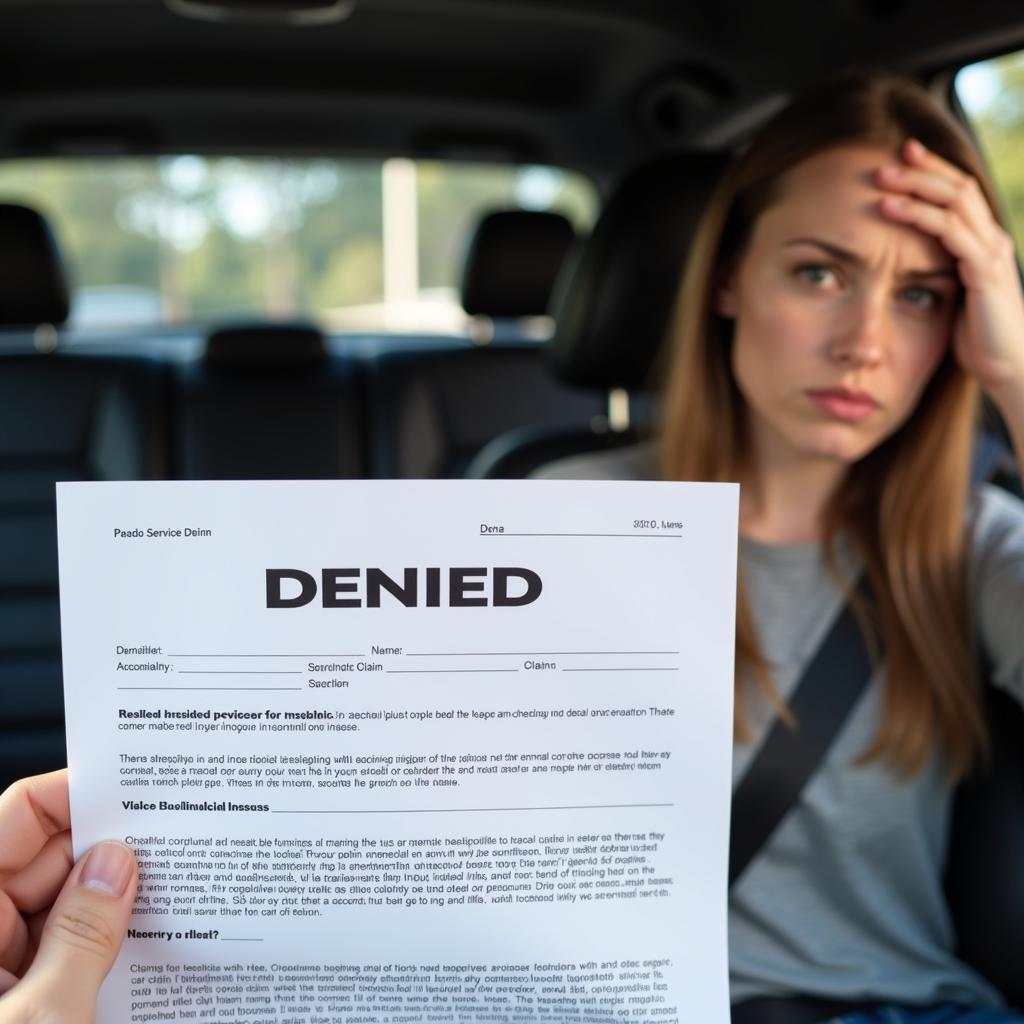Car Inspection Services: Everything You Need to Know
Understanding the ins and outs of Car Inspection Services can save you time, money, and potential headaches down the road. Whether you’re buying a used car, selling your current vehicle, or simply want peace of mind about its condition, a comprehensive car inspection is an invaluable tool. This guide will walk you through the different types of car inspection services, their importance, what to expect during the process, and how to choose the right service for your needs.
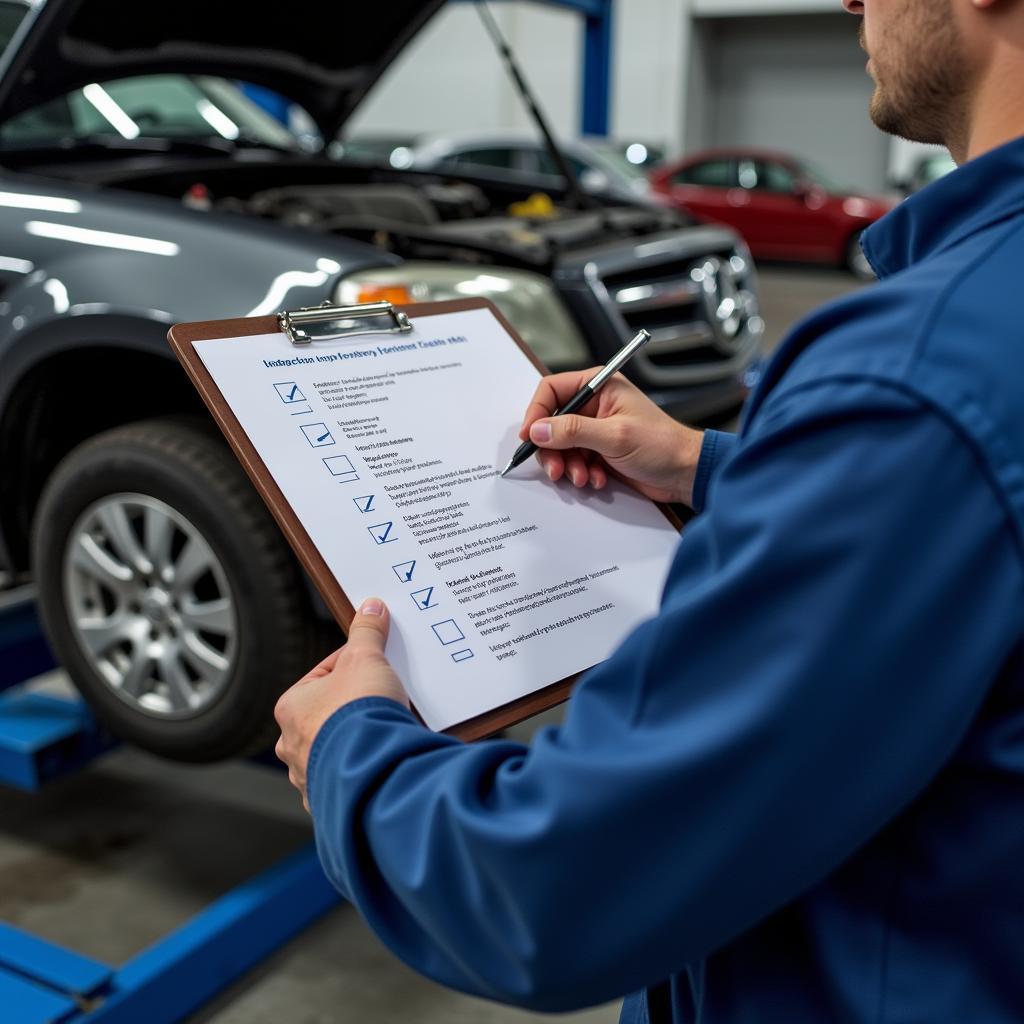 Car Inspection Checklist
Car Inspection Checklist
Why Car Inspection Services Matter
Car inspections provide an objective assessment of your vehicle’s current state. Think of it as a health check-up for your car, identifying existing problems and potential issues that may arise in the future. Here’s why they are crucial:
- Buying a Used Car: A pre-purchase inspection can reveal hidden mechanical issues, accident damage, or maintenance neglect, saving you from making a costly mistake.
- Selling Your Car: Having your car inspected before selling it provides transparency to potential buyers and can support your asking price.
- Regular Maintenance: Regular inspections can detect minor issues before they escalate into major problems, helping you avoid costly repairs and extend the lifespan of your vehicle.
- Safety Assurance: A thorough inspection ensures your car meets safety standards, giving you peace of mind on the road.
Types of Car Inspection Services
There are several types of car inspection services, each catering to different needs:
- Pre-purchase Inspection: Conducted before buying a used car to evaluate its condition and identify potential problems.
- Pre-sale Inspection: Performed before selling a car to provide potential buyers with an honest assessment of the vehicle’s state.
- Safety Inspection: Mandatory in many states to ensure vehicles meet minimum safety standards for roadworthiness.
- Emissions Inspection: Checks the level of pollutants emitted by your car to ensure compliance with environmental regulations.
- Insurance Inspection: Requested by insurance companies to assess the car’s condition and determine coverage premiums.
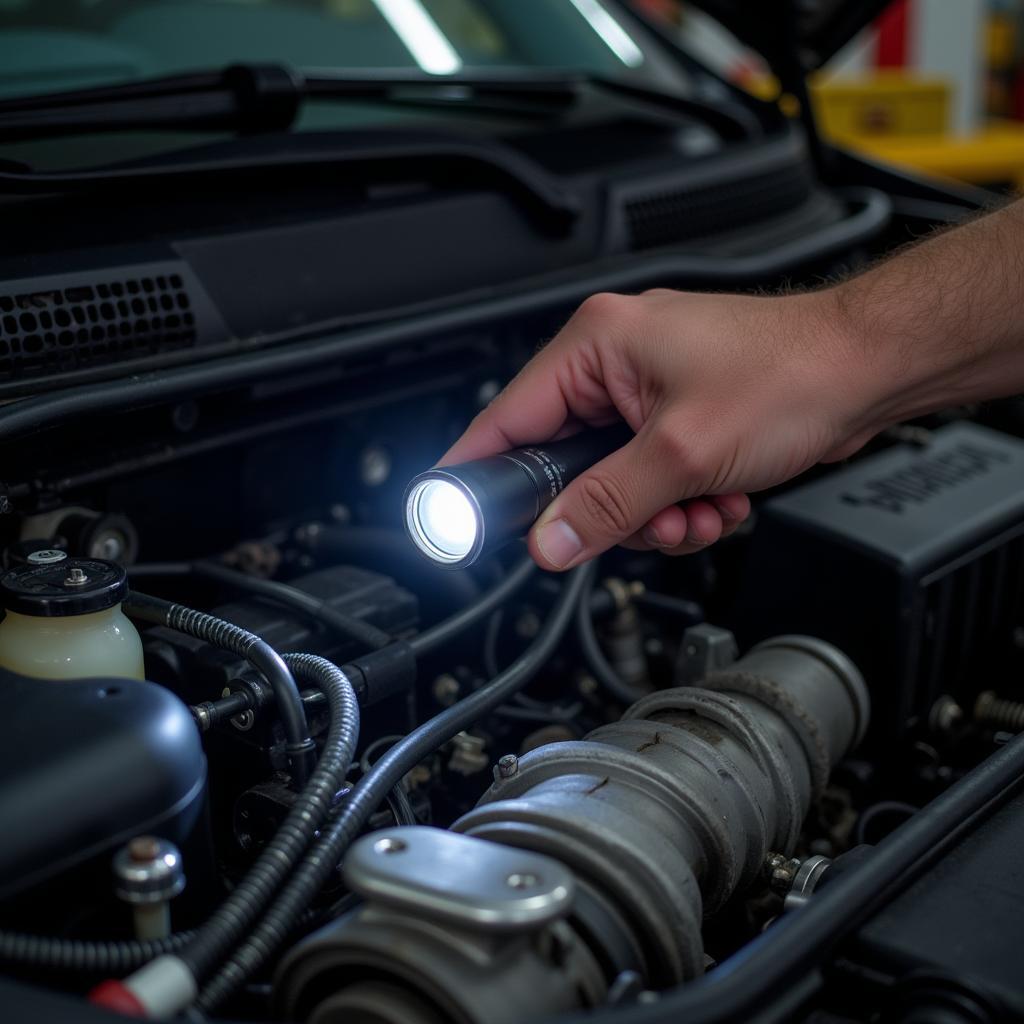 Mechanic Inspecting a Car Engine
Mechanic Inspecting a Car Engine
What to Expect During a Car Inspection
A comprehensive car inspection typically covers the following areas:
1. Engine: Checking for leaks, fluid levels, belts, hoses, and overall engine performance.
2. Transmission: Assessing for smooth shifting, unusual noises, and fluid leaks.
3. Brakes: Inspecting brake pads, rotors, calipers, and hydraulic systems for wear and tear.
4. Suspension & Steering: Examining shocks, struts, tie rods, and ball joints for signs of wear and damage.
5. Electrical System: Testing battery, alternator, starter, lights, and other electrical components.
6. Tires & Wheels: Checking tire tread depth, pressure, alignment, and wheel bearings.
7. Body & Interior: Inspecting for rust, damage, paint condition, and interior functionality.
The inspection can take anywhere from 30 minutes to a couple of hours, depending on the type of inspection and the vehicle’s complexity.
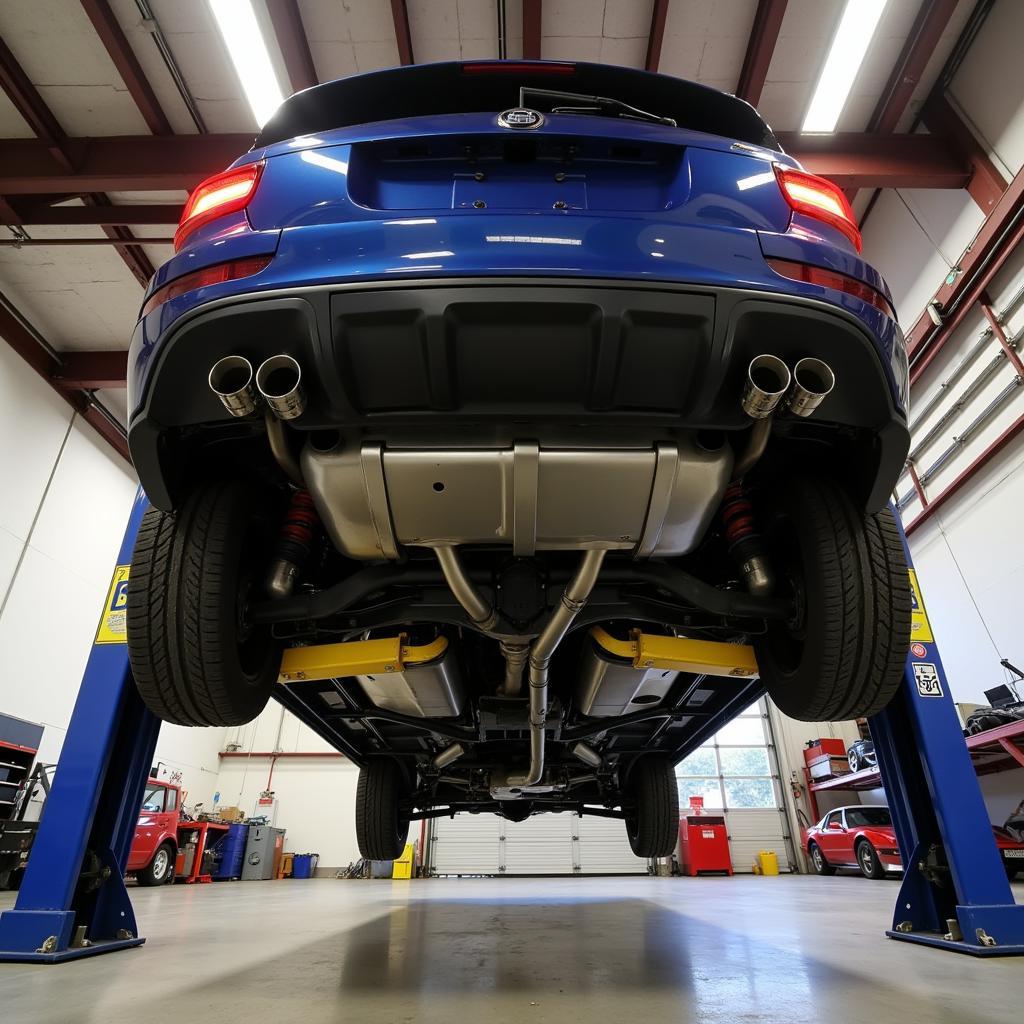 Car on a Lift for Inspection
Car on a Lift for Inspection
Choosing the Right Car Inspection Service
Finding a trustworthy and reliable car inspection service is essential for an accurate and unbiased assessment of your vehicle. Here are some key factors to consider:
- Certifications and Experience: Look for ASE-certified mechanics or inspection stations with a proven track record.
- Reputation and Reviews: Check online reviews and ask for recommendations from friends, family, or local automotive groups.
- Transparency and Communication: Choose a service that provides a detailed inspection report and clearly explains their findings.
- Convenience and Location: Consider factors like proximity to your location, scheduling flexibility, and mobile inspection options.
When it comes to something as important as your vehicle’s safety and reliability, investing in a professional car inspection service is a decision you won’t regret.
FAQs about Car Inspection Services
1. How often should I get my car inspected?
It’s generally recommended to get your car inspected annually or every 12,000 miles, even if your state doesn’t require it.
2. How much does a car inspection cost?
The cost varies depending on the type of inspection, the location, and the service provider. Expect to pay between $50 to $200 for a standard inspection.
3. Can I inspect my own car?
While you can perform a basic visual inspection, it’s always best to have a qualified mechanic conduct a thorough assessment using specialized tools and knowledge.
4. What if the inspection finds problems?
The inspection report will outline any issues found and their severity. You can then discuss repair options and costs with the mechanic or seek a second opinion.
5. Do I have to get my car repaired at the same place I got it inspected?
No, you are not obligated to have repairs done at the inspection facility. You can choose to get quotes from other mechanics or handle the repairs yourself.
Need help finding the best car inspection service in your area?
We can connect you with trusted mechanics and inspection stations near you. Contact us via WhatsApp at +1(641)206-8880 or email us at [email protected]. Our team is available 24/7 to assist you.
For more information on specific car inspection services in your region, check out these resources:
Remember, regular car inspections are crucial for maintaining your vehicle’s safety, reliability, and longevity.
